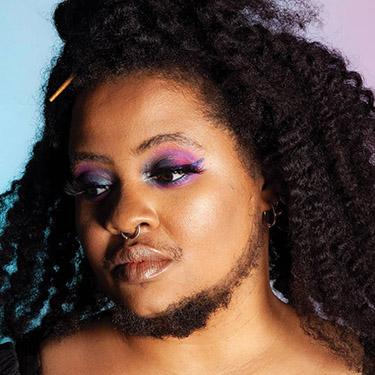Reclaiming My Voice
Eat the meat and spit the bone.
One of the most valuable lessons I learned while I was studying at Bryn Mawr was that the voiceless don’t exist; what exists are people with power who are excited to speak over “others” and those of us who are the “others” who have been strategically silenced. As an anthropology major and Africana studies minor, I struggled weekly with the emotional and mental roller coaster of witnessing that power dynamic. I spent mornings in Dalton being emotionally drained by anthropology methods courses, then afternoons in English House being poured into by Africana literature courses. Something had to give, and I didn’t want it to be me.
In journeying further into anthropology, I carried with me the words of my elders: Eat the meat and spit the bone; I only took what I could use. Learning about the various ways an anthropologist could engage in ethnography led me to becoming enamored with autoethnography and exploring how to interrogate myself, or not, in order to tell my own story in a way that felt empowering to me. In my spare time, I watched documentaries by First Nations anthropologists about reclaiming their ancestral ways and read non-academic essays by people throughout the African Diaspora who uplifted the importance of not letting the “Ivory Tower” drown out their voices. Autoethnography called to me in my potential thesis work, and I was eager to answer, but I had no support with this from the anthropology department.
While my anthropology professors enculturated us into the legacy of white supremacist ethnographic methodology, outside of the classroom I was grateful to find myself under the tutelage of two of the only Black woman professors on campus at the time, Dr. Mary Osirim in sociology and Dr. Linda Susan Beard in English. When she was the dean of the Graduate School of Arts and Sciences, Dr. Osirim made time to tell me of her sociological work on the African continent with fellow Black women. Additionally, Dr. Osirim sponsored my participation in my first-ever academic conference with the African Studies Association, though I wasn’t one of her students. During long office hours after class, Dr. Beard, who I reverently referred to as Mother, introduced me to scholars in critical race theory that I could reference in my thesis. She would also eventually serve as one of my thesis mentors, even though she wasn’t an anthropology professor. Through the informal yet intentional mentorship of these two brilliant Black women, I understood how to be the voice that I needed.
Their encouragement and support in helping me find my own voice as a Black researcher has manifested itself in all aspects of my life, whether I’m working on a new body of work for an art exhibition or drafting a new performance. Although I’m not currently in academia, I still embrace all that I learned from Dr. Beard and Dr. Osirim, and I hope to be able to pass along this knowledge to younger Black researchers seeking out their own voices.
This issue of the Alumnae Bulletin presents reflections from Black alumnae/i and students spanning 65 years in the life of the College.
Published on: 03/20/2021
